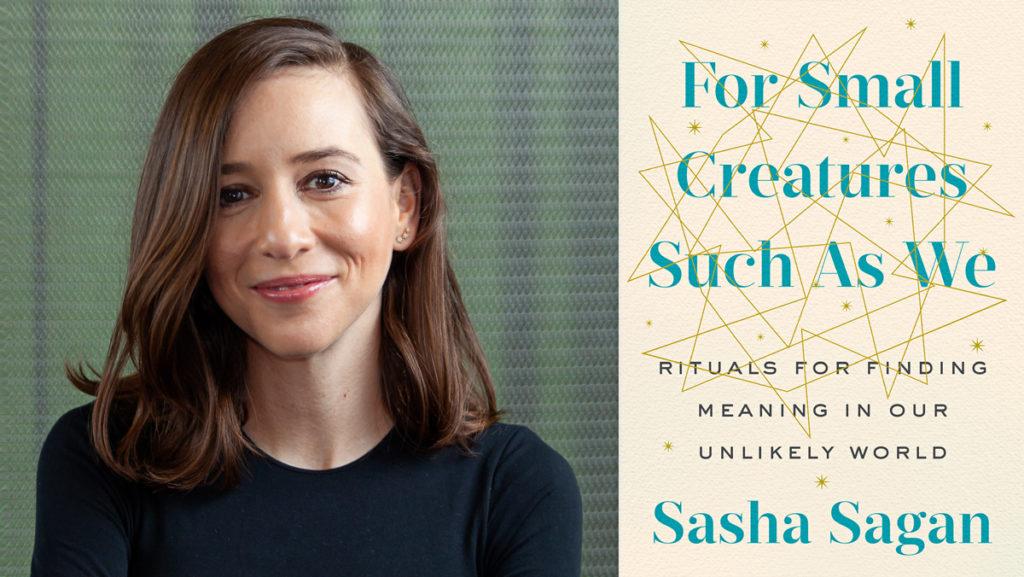Ithaca native Sasha Sagan wrote her first full-length novel, “For Small Creatures Such As We: Rituals for Meaning in Our Unlikely World,” focusing on her family history, experience with religion and relationship with the scientific community. Sagan is the daughter of Carl Sagan, astronomer, author and former Cornell University professor. Sagan focuses closely on her extended family history and uses the lives and lessons of her family members to contextualize complicated matters within the scientific community and society.
Sagan is currently on a tour to promote and discuss her new book, and she will return to her hometown for her book event at 4 p.m. Nov. 9 at Buffalo Street Books.
Staff writer Vivian Goldstein spoke with Sagan about her inspirations, her struggles as an author and her reasons behind the messages in her book.
This interview has been edited for length and clarity.
Vivian Goldstein: What inspired you to write this book?
Sasha Sagan: I wrote an essay in “The Cut” about five years ago that touched on some of the themes I explored in it. Facing mortality without religion in particular really seemed to resonate. After that experience, I knew I wanted to write a book, but the form of this book didn’t become completely clear until my husband and I started thinking about having a baby. Like any expectant parents, we had to think about what we would celebrate with our little one, what we would instill in them, how we would answer those profound questions all children ask. I thought maybe other secular people, or people who don’t fit neatly into one category or another, might be wrestling with some of those same questions, maybe also looking for ways to celebrate and honor all the wondrous things we understand thanks to the scientific method.
VG: What was it like to discover, reflect on and write about your own personal family history?
SS: The best word I can think of is fulfilling. There was something about sharing these stories, the details of the lives of the people to whom I owe so much, that gave me a deep pleasure. I have always been fascinated with my family history, and I loved sharing it with a wider audience. I’m so glad I’m not the only one who finds them interesting!
VG: Your book is proposing a small revolution in comparison to current discourse. Does this relate to why you wrote it now? What do you hope your book contributes to larger discourse?
SS: Besides astronomy, my dad taught an undergraduate course in critical thinking at Cornell. Critical thinking and rigorous questioning aren’t just useful for separating scientific fact from fiction. They are also crucial to a functioning democracy. I, quoting my parents, of course, write about this a bit in the “Independence Days” chapter. … I hope to emphasize what our species shares on this little out-of-the-way world and highlight how superficial and minor our differences are.
VG: Were you ever nervous to publish a book that may challenge many people’s current belief systems?
SS: I was very nervous at times, but not for that specific reason. … My fear was that I didn’t have anything original to add to these topics. I don’t know if I have or not, but I hope I’ve at least presented some ideas in my own particular way.
VG: While the book is all about finding sacred moments and rituals in normal life, are there ever moments that don’t feel sacred? How do you personally distinguish them?
SS: Essentially, time is constantly passing, changes are constantly taking place, but often we don’t even detect them. And then there are these moments when all the hair on your arms stands up and you suddenly experience it for a second. We just have to keep an eye out for those.
VG: Who did you write this book for? Why?
SS: I had a few groups in mind and people I know who I thought of often while writing. A major one was people who identify as “spiritual but not religious.” I think we all want to feel connected to the grandeur of the universe. I think we all want to feel a sense of transcendence. My parents taught me that science can provide that, revealing more astonishing beauty than humans could have ever concocted. I think we can get a lot of fulfillment from science if only it were presented with more enthusiasm to more people.
VG: Did your own beliefs change as you wrote this book?
SS: I wouldn’t say my beliefs changed, but there was something about writing down my perspectives and experiences that did change something in me — maybe my approach. When I get into philosophical debates at dinner parties, something I’m very prone to, I think I’m a little less intense than I used to be. Maybe because I feel less urgency to express some of my strongest opinions over the course of the evening knowing I’ve organized them neatly and written them down for anyone who cares to read them.














